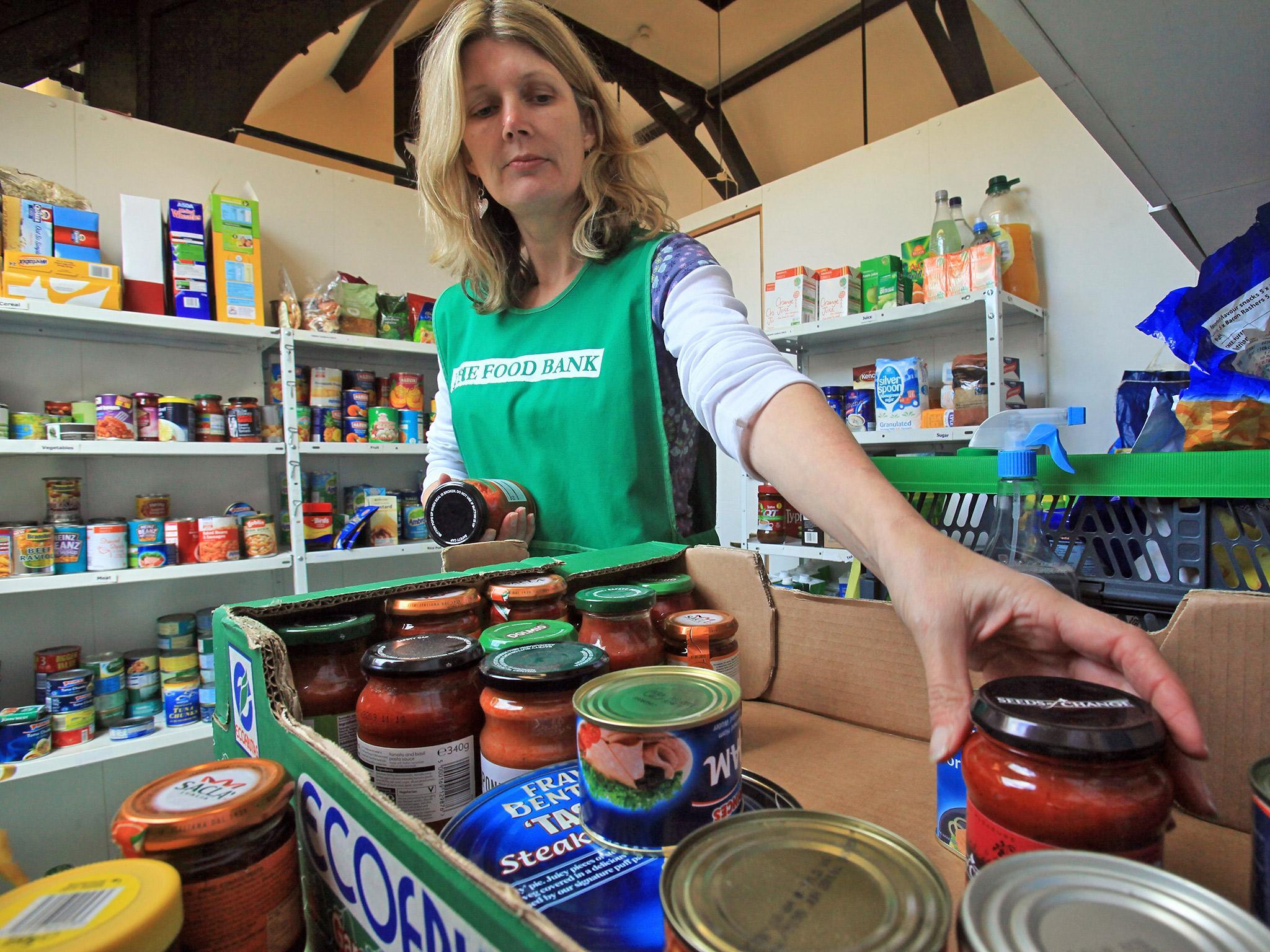This is the year that Britain will allow working families to slide into poverty
Inflation, poor wage growth and rising house prices are combining to create an income trap that is increasingly hard to escape


Be grateful for what you’ve got, because things are only going to get worse. That is the warning from the influential Westminster think tank that spends its time head-scratching over the fate of low- and middle-income families.
In the run-up to Christmas, the Resolution Foundation published two short but interesting pieces which, taken together, should send a certain chill down the spine as families gather to ring in the new year. First, a blog by director Torsten Bell reminded readers that, however poorly off we felt in 2016, we may end up looking back with rose-hued spectacles at the year of Brexit and Donald Trump. The small growth in disposable income we had this year might be, in Bell’s words, “as good as it gets”.
Household income grew at the fastest rate in the year to April 2016 than it has since 2001, and that included working households as well as pensioners. Growth was also shared across income levels; most people probably felt they had a little more money in their pocket towards the middle of the year, even though it was only taking them back to pre-crisis levels.
Now Bell says earnings growth is set to fall yet again – particularly around the turn of the year. This is down to both inflation and the delayed Brexit effect.
Secondly, it produced a study on housing which concluded that Government figures projecting the number of families that own their own home were wrong. Because these figures are counted per household, rather than per person living in a property, any lodger renting a room in an otherwise owner-occupied home would not be accounted for. Similarly, house shares – popular among people aged under 40, many priced out of buying their own home – are classed as a single renting household, even it if includes five unrelated individuals sharing the rent on one large property. Just few years ago, those same people may have been living in five, owner-occupied one-bedroom flats; they would have been counted as five distinct households.

So though official figures tell us that 61 per cent of people still own, the Resolution Foundation believes this is a gross underestimate of the number of renters – a figure that is still yet to rise, given house price growth and the end of wage inflation as predicted for 2017.
So what we can expect to see next year, and for a number of years to follow it, are living standards falling for all – but most sharply for those in the bottom income brackets. They are not just falling in real terms, but – and this is important – falling against where one’s realistic aspirations might have been set. Tell the 35-year-old married couple stuck sharing a room in a house that their small rise in income this year was something to get excited about and they will laugh. This is not what they had imagined married life would be like when they first embarked on their adult lives before the 2008 financial crash.
What will mark out 2017 as different, though, is that next year work will not release lower-income families from the risk of falling into poverty. Inflation, poor wage growth, zero hours contracts and rising house prices are combining to create an income trap that is increasingly hard to escape. The small fillip given to wages by the Government’s introduction of a higher minimum wage is negated by changes it is making to the benefit system.
Four years ago, the Department for Work and Pensions published data that revealed that the majority of new housing benefit claimants were now in work. The figure of overall housing benefit claims from in-work families had doubled by 2014. Due to the introduction of Iain Duncan Smith’s crisis-prone benefit reform programme, Universal Credit, the same figures for 2016 are not available. However, the DWP does reveal that 41 per cent of all those claiming Universal Credit – which includes housing benefit – are also in work.
But these benefits – no longer just paid to the unemployed but used to support low-income working families to meet their very basic needs for shelter, food and warmth – are being pared back. We have already had years of trimming of housing benefit, the introduction of the bedroom tax, changes to disability payments, the rising of the state pension age, the freezing of working age benefits and introduction of a benefit cap, and cuts to tax credits. In 2017 follows (if executed as planned): reductions in tax credits for child support; the removal family tax credit criteria; the removal of automatic housing benefit eligibility for those aged under 21; and cutbacks to hardship payments for mentally ill and homeless people.
With the Brexit due to send its ripples across the economy next year, employment is not expected to rebound. What choice will the lowest income families have but to work more hours for ever less, with so little to show for it? This is the year we’ll see a resurgence of in-work poverty in modern Britain. If we thought 2016 was tough, we haven’t seen anything yet.
Join our commenting forum
Join thought-provoking conversations, follow other Independent readers and see their replies
Comments
Bookmark popover
Removed from bookmarks